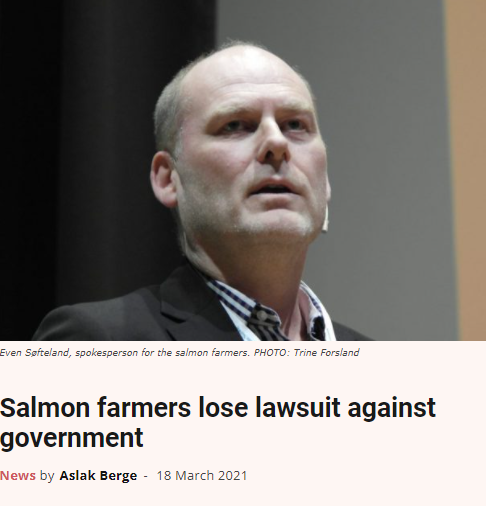 Hér eru töluverð tíðindi. Norskir sjókvíaeldisframleiðendur hafa tapað hópmálssókn sinni á hendur norska ríkinu. Málsóknin snerist um að fá dæmt ólögmætt svokallað umferðarljósakerfi norsku Hafrannsóknastofnunarinnar, en kerfið er framleiðslustýring hins opinbera þegar laxalús fer yfir tiltekin mörk í sjókvíunum með skaðlegum áhrifum fyrir villta stofna lax, urriða og sjóbleikju.
Hér eru töluverð tíðindi. Norskir sjókvíaeldisframleiðendur hafa tapað hópmálssókn sinni á hendur norska ríkinu. Málsóknin snerist um að fá dæmt ólögmætt svokallað umferðarljósakerfi norsku Hafrannsóknastofnunarinnar, en kerfið er framleiðslustýring hins opinbera þegar laxalús fer yfir tiltekin mörk í sjókvíunum með skaðlegum áhrifum fyrir villta stofna lax, urriða og sjóbleikju.
Að umferðaljósakerfið sé svo mikill þyrnir í augum sjókvíaeldisfyrirtækjanna er með nokkrum ólíkindum því meðvirkni kerfisins með þessari starfsemi er nú þegar allt of mikil, eins og ýmis norsk umhverfisverndarsamtök hafa bent á.
Laxalús úr sjókvíunum er mjög skeinhætt ungviði villta laxins.
Samkvæmt umferðarljósakerfinu telst starfsemin vera á grænu ljósi ef hætta er á því að undir 10% seiða villta laxins drepist af völdum lúsasmits úr sjókvíunum og má jafnvel stækka á viðkomandi svæði. Ef hættan á seiðadauða villta laxins er á bilinu 10 til 30% fer starfsemin á gult ljós. Það er ekki fyrr en hætta er á að yfir 30% seiða villta laxins í nágrenni sjókvíanna drepist sem framleiðendur fá rautt ljós og þurfa að fækka eldislaxi í sjókvíunum.
Sjókvíaeldisframleiðendurnir gátu ekki einu sinni sætt sig við þetta lina kerfi og fóru því í mál við ríkið. Frekjan og skeytingarleysið gagnvart náttúrunni og lífríkinu á sér engin takmörk.
Western Norway salmon farmers sued as believed that neither the legal nor the knowledgeable basis was good enough in the new Traffic Light System.
In February, 25 fish farming companies in Western Norway sued the country. This was because in production area 4 (PO4), the production in the area has been reduced by six per-cent as a result of the Traffic Light system.
No basis
The salmon farmers took legal action against the authorities because they believed there was no professional basis for their decision, which was based on high sea lice levels in the area.
In the sentencing that came on Wednesday afternoon, the country’s Ministry of Industry and Fisheries was acquitted in court. The fish farming companies now have to pay the legal costs of EUR 0.17 million, reported the newspaper Bergens Tidende.
The Institute of Marine Research’s (IMR) credibility was on the line. Researchers here regulate the country’s largest export industry after the oil industry.
“It is a fundamentally important decision,” said IMR managing director and geneticist Sissel Rogne in a statement on the organisation’s site. “I am very pleased with this outcome,” she added.
Criticism
The Institute of Marine Research provides much of the knowledge base to the Traffic Light System. Several researchers from the Institute were witnesses in the case, where the system was the subject of much criticism on the part of the plaintiffs.
Rogne added that the judgment was fundamentally important for IMR as a research and management support institute.
“It is not the legal system that will overrule our knowledge and our research-based advice. Natural science is handled through internationally renowned academic methods – ensuring thorough and critical quality assurance,” she said.
Appeal
Minister of Fisheries and Seafood Odd Emil Ingebrigtssen said he was pleased that the state has won the case fully and received legal costs.
“We believe it is a correct conclusion. The judgment is extensive and we will, together with the Attorney General, take time to set ourselves carefully in the premises,” the minister said.
“Now we will sit down and carefully review the judgment and the premises that underpinned and we will certainly appeal the case,” fish farmer spokesman Even Søfteland told Bergens Tidende.
